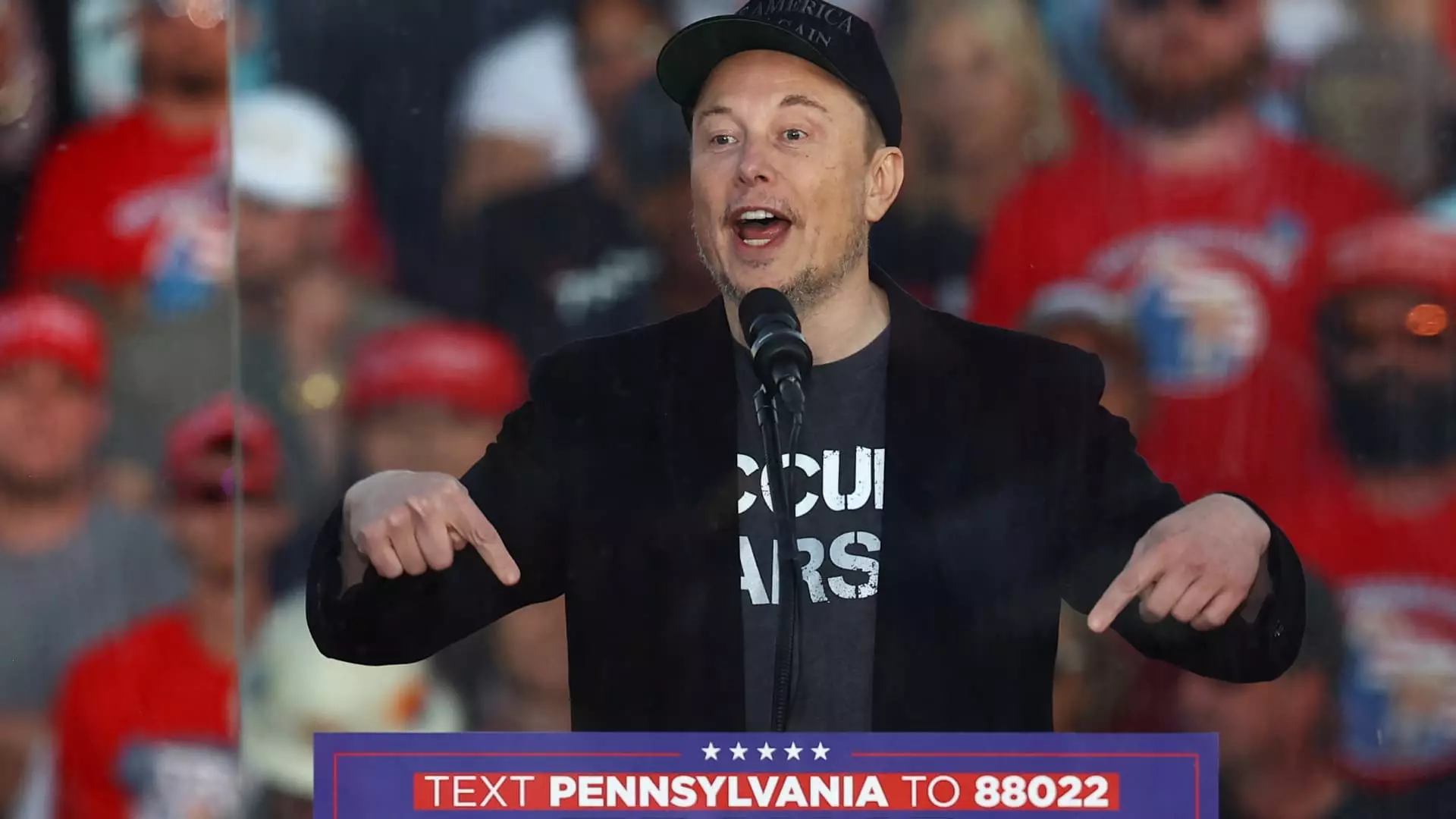In contemporary politics, the amalgamation of wealth, influence, and activism can lead to unprecedented scenarios, such as those that have surfaced in the current presidential election cycle. One of the most striking instances is Tesla CEO Elon Musk’s support for Donald Trump. Recently, Musk promoted a referral program through Trump’s political action committee (PAC) that dangles a $47 incentive for each radio contact—voters from swing states referred to an online petition. While the seemingly innocuous lure of financial gain might attract attention, the deeper implications of this strategy must be scrutinized for what they reveal about modern electoral practices and the role of prominent figures in shaping political discourse.
Musk’s initiative centers around a system that rewards individuals for directing swing-state voters to a petition that pledges support for First and Second Amendment rights. However, the lack of transparency regarding the petition’s ultimate purpose raises important questions. Traditional petitions typically involve explicit demands or a clear outline of their intended impact, yet this particular effort seems to prioritize data collection over actionable political goals. The campaign is strategically limited to just seven swing states—Pennsylvania, Georgia, North Carolina, Nevada, Arizona, Michigan, and Wisconsin—regions critical for deciding the electoral outcome. By prioritizing swing-state voters, Musk and Trump’s PAC aim to galvanize a targeted support base, while simultaneously collecting personal information.
The ethical ramifications of collecting voter information under a veneer of political advocacy cannot be overlooked. Earlier missteps, such as the investigation by North Carolina’s Attorney General’s office, underline a troubling trend where organizations exploit voter registration efforts for data acquisition. While Musk touts this initiative as a means to protect constitutional rights, the potential for misuse of collected information raises significant doubts about the motives behind such campaigns. The conversation surrounding voter privacy and data integrity is vital, especially given the modern digital landscape’s vulnerabilities.
Musk’s involvement in this electoral maneuver is especially noteworthy due to his cultural and economic influence. The billionaire’s presence at a Trump rally, coupled with his public promotion of the PAC’s initiative, signifies a blending of business acumen and political involvement. His assertion that “this is no ordinary election” and that Trump’s victory is essential to “preserve democracy” taps into a burgeoning trend where business leaders are perceived as political saviors or threats, depending on their affiliations and messaging. This intersection of high-profile endorsements and political campaigns invites scrutiny about the consequences of allowing wealth to dictate political narratives.
Musk’s outreach sets a precedent that could transform how future political campaigns leverage personalities for mobilizing grassroots support. With a promise of monetary incentive for participation, traditional volunteerism may be undermined, replaced with a transactional approach to political engagement. By incentivizing individuals to recruit voters, this campaign blurs the lines between enthusiasm for democratic participation and a profit-driven model that could diminish sacred civic duties into mere monetary transactions.
As Musk’s PAC and the Trump campaign march forward with this controversial strategy, the broader implications for democratic engagement and electoral integrity warrant careful observation. The intersection of influencer dynamics and political advocacy necessitates transparency and accountability. As the campaign unfolds, it is imperative for voters, regulators, and ethical advocates to critically analyze the ramifications of these developments, calling for higher standards of integrity in electoral practices. The future of political engagement may hang in the balance, manipulated as it is by powerful interests promising easy rewards.



Leave a Reply